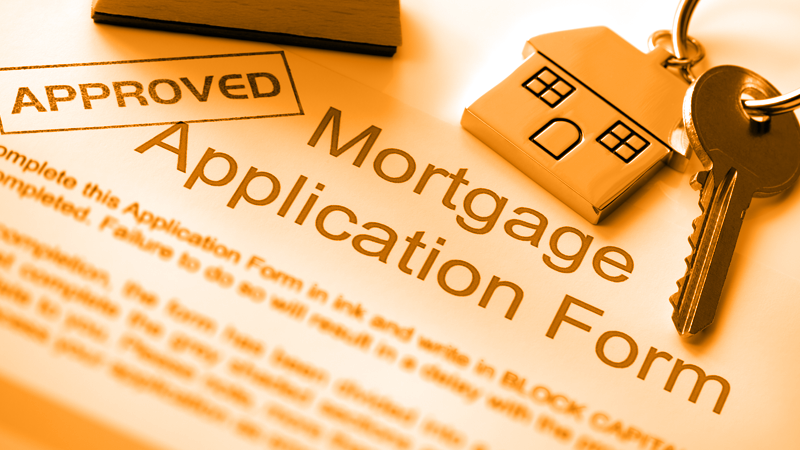Does your ex have to pay half the mortgage after separation? This is an extremely common situation and in this post, we will provide some answers and clarity.
Separating from a previous partner can be a stressful and emotional time as previous memories of buying a property together soon disappear once divorce and separation proceedings have started, and the reality of splitting finances kicks in!
It is also not unknown for tensions to run high during such scenarios resulting in one partner moving out and refuse to maintain their contribution towards the mortgage repayments.
In this guide, we will explore the legalities of splitting the costs of a mortgage once a couple has separated.
Joint Mortgages and Couple Separation
Where both parties are listed on the mortgage, the responsibility of ensuring that each of the mortgage repayments is paid in full does not change following a couple’s separation.
Both parties are equally liable to the mortgage lender and therefore should there be any pause or default in the monthly mortgage repayments, the lender would be in touch with both parties.
The responsibility to the mortgage lender does not change despite a revised living agreement and therefore monthly repayments should not cease during any disagreements.
Should repayments cease, the consequences of any additional costs or repossession would also sit equally between both parties.
However, where one party is not listed on the mortgage deed, they will not be responsible for maintaining the mortgage repayments.
Need more help? Check our quick help guides:
- Reasons why a mortgage could be declined on affordability.
- How reliable is a mortgage in principle?
- How do joint mortgages work?
- Can you get a mortgage on a fixed-term contract?
What Should I Do if My Ex-Partner Stops Paying Towards the Mortgage?
Should an ex-partner (who is listed on the mortgage) advise that they are no longer willing to pay their share of the mortgage repayments, the first step is to contact the mortgage lender as soon as possible.
Lenders who are kept informed of any circumstance changes are often more willing to show leniency upon the case and even offer reduced monthly repayments or switch the mortgage to an interest-only product while negotiations between both parties are ongoing.
It would be strongly recommended that further advice is sought at this early stage from both a legal and financial perspective to review all options available.
Can an Ex-Partner’s Name be Removed from the Mortgage?
Yes, technically an ex-partner can be removed from the mortgage via the process of a transfer of equity. The ex-partner will need to have agreed to be removed from the mortgage before approaching the lender to make the change.
However, affordability criteria would need to be met for the remaining party to reassure the lender that the mortgage can be covered. If the request is refused by the lender, other options can be explored.
Related guides:
- When was my house built?
- Buying out a sibling from an inherited house
- How long does it take to release mortgage funds?
- Does a valuation mean that a mortgage is approved?
- Mortgage lenders that accept benefits
- Can I extend my interest-only mortgage term?
What are the Other Options if The Request to Remove the Ex-Partner from the Mortgage is Refused?
It is highly recommended that further advice is sought before exploring further options and making any commitments where financial matters are concerned.
Other options to explore include:
- Explore if an agreement can be made between both parties to continue jointly paying the mortgage. If mediation has not already been attempted between both parties, it may be worth a try. If an agreement can be concluded, it may result in both parties continue to make equal payments, especially if one party has moved out however an agreement would protect both parties’ interests and retains the property, even for investment purposes.
- Another option is to replace the ex-partner on the mortgage with another person who can afford to contribute towards the mortgage repayments, perhaps a family member could assist with stepping in to retain the property.
- Alternatively, there is the option of seeking to move and downsize to a smaller property. This option would require agreement from both parties to sell the property and also would involve additional costs such as estate agent fees, legal costs and stamp duty on a new property.
- Another approach is to apply for a court order to remove the ex-partner from the title deeds of the property but not from the mortgage itself. This would mean that the ex-partner would not have any further claim to the property but would still be responsible for the mortgage repayments.
- Another avenue via the courts is to obtain a court order to enforce that the ex-partner continues to pay. This however can be a lengthy process.
- Lastly, should the current mortgage provider decline a request of removing the ex-partner there may be the possibility of completing this with an alternative provider? It would be worth investigating if as a single person one partner could meet the affordability criteria with a different lender to re-mortgage in one name only. To explore this option, it would be highly recommended that advice from an independent financial advisor (IFA) is sought. An IFA can assist with individual cases and has plenty of market knowledge to advise the differences between affordability criteria of various lenders.
Further Free Advice
In addition to legal and financial professionals, there are other contact points to obtain free advice as follows:
- Citizens advice provide free advice across a range of issues including relationship breakdowns, debt, negotiating with creditors and repossessions. Their national adviceline phone number is 0800 144 8848.
- StepChange Debt Charity provides free expert debt advice, aiming to get finances back on track. Their phone number is 0800 138 1111.
- National Debtline Charity provides free and independent debt advice. Their national adviceline phone number is 0808 808 4000.
Related guides:
- Mortgage 5 times salary.
- Can you get a mortgage on land?
- Refurbishment mortgages.
- Part and part mortgages.
- HMO mortgages.
Does My Ex Have to Pay Half the Mortgage Summary
We appreciate that separation is an emotive topic however protecting the interests of our clients is at the forefront of our business.
We, therefore, offer an extensive service, taking the time needed to understand the individual circumstances of each case, exploring the various financial options available.
We ensure that the risks and all other considerations involved are fully explained so that each individual can make their own, most suited decisions and future plans. We also always treat all clients with the utmost care and confidence throughout the process.
We highly recommend that an appointment is made with our friendly specialist financial advisors before committing to any decision or the financial avenue.
Call us today on 03330 90 60 30 or feel free to contact us. One of our advisors will be happy to talk through all of your options with you.
Further reading:
 03330906030
03330906030









